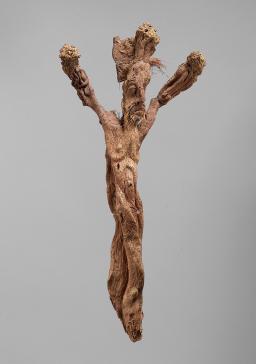Drawing on court cases, scholarly treatises, and material objects, Affective Technologies examines a cluster of practices and objects—including the aphrodisiac Spanish fly (cantharides), mandrake roots, and alchemical “cups of love”—associated with control of the bodies, desires, and decision-making capacity of others in early modern Europe (ca. 1450–1750). When realized, this ambition could undermine everything from political sovereignty and social conventions to spiritual and bodily integrity. For those who feared the loss of these things, affective technologies were terrifying; for those who wished to control them, it was empowering. Contests over who could make, access, and use such affective technologies reveal the gendered and social stakes of knowledge-making, particularly around the nature and vulnerability of desire and the will, in early modern Europe.

Mandrake root in form of a crucifix. Alraune, Kruzifix, 16. Jahrhundert (?), https://www.khm.at/objektdb/detail/390912/
©KHM-Museumsverband
Project
(2022-2023)
Affective Technologies: Desire and the Will in Early Modern Europe
- Tara Nummedal
